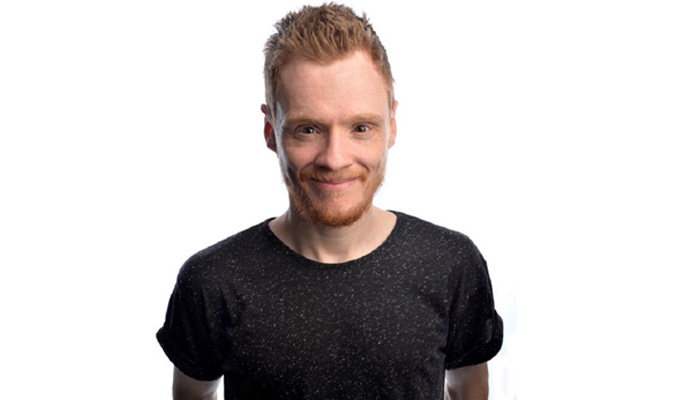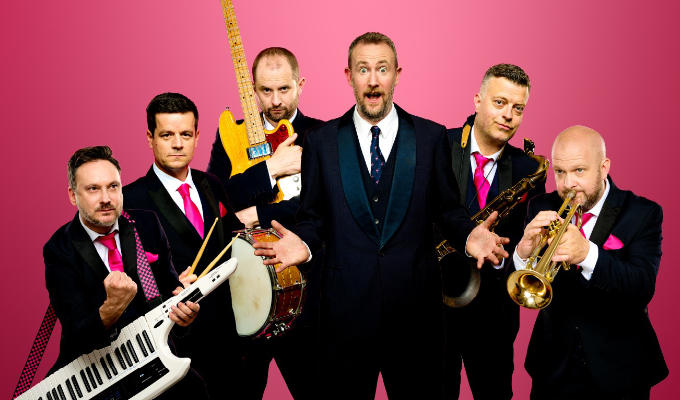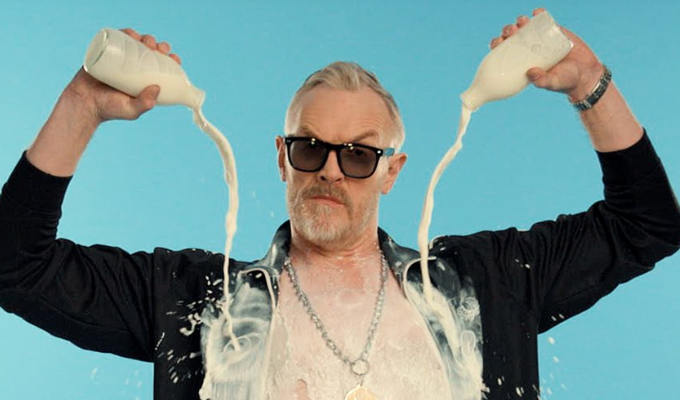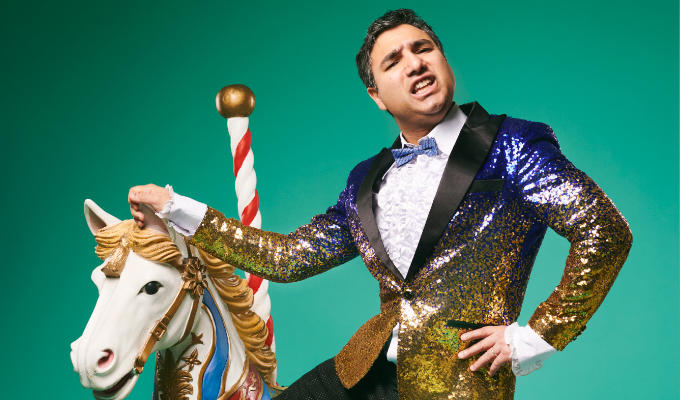
Andrew Lawrence: Uncensored
Note: This review is from 2015
Review by Steve Bennett
He’s probably Britain’s most reviled comic, at least among other comics. Either him or Dapper Laughs. So has Andrew Lawrence, the new voice of the right, turned into a vile hate speaker, stand-up’s own English Defence League, or, worse, Katie Hopkins?
Well no. The picture that emerges from Uncensored is of a man who’s been battered by the social media outrage machine and decided that it’s not right that dissent from comedy’s liberal consensus is shut down – so has come out on the counter-attack, swiping out wildly and aggressively.
But the problem is that in taking a contrary stance to the twitter verse’s sanctimonious echo chamber, he’s wound up sounding like every other right-wing commentator, of which (despite his protestations) there are plenty. Crucially, he hasn’t yet figured out how to put a comic spin on most of his arguments, so just rants.
Here’s something controversial. Sometimes he’s right. Certainly his axioms about the state of comedy are correct. He has got a point about too many ‘cheap and easy gags about Ukip’ in the build-up to the election; there should be a greater plurality of views in stand-up; careerist comics are limiting the art form, and comedians trying to censor other comedians is the top of a very slippery slope.
But what do we get here? The complaint that: ‘You can’t talk about immigration.’ For indeed anti-immigration sentiment can only be whispered in clandestine meeting places; its public expression confined to tiny underground publications circulated covertly: The Daily Mail, The Sun, The Daily Express, The Daily Telegraph, The Times and The Star.
Anti-immigration might be unpopular in comedy, but not in life. So essentially Lawrence is being a bit hack by echoing the opinions of Richard Littlejohn, Melanie Phillips, Peter Hitchens or 80 per cent of cab drivers. It’s not a case of: ‘At last, a comic with the balls to say this stuff’ so much as: ‘Heard it!’
On immigration, he points out that his mother was an immigrant, from Ireland, claiming those from the Emerald Isle are ‘universally well liked’. Try telling that to anyone who faced with the widespread ‘No blacks, no Irish, no dogs’ rules of the 1970s. Lawrence isn’t racist for bringing up immigration, but he certainly comes across as lacking compassion with his ‘we’re full’ rhetoric.
He makes his arguments in Uncensored by mimicking the voice of the left in an even more irritating one than his own, making a liberal consensus assertion he can challenge. Or sometimes it’s the audience’s voice he adopts, commenting: ’This is all very well Andrew, but say something funny,’ a sentiment that’s the easiest thing to agree with all night.
Not sharing his politics shouldn’t matter. In fact, agreement can be anathema to good comedy. I’m with him on that… it can be too easy to get the audience onside by saying stuff you know they’ll applaud.
A Lawrence joke like: ‘How many heads must Isis cut off before people realise Islam is a religion of peace?’ is empirically a good one, even if you take issue with the politically-incorrect assumptions that underpin it. But it’s a rare example of what he should be doing if it were to validate his standpoint.
When we’re not laughing and considering his arguments, then they are more contentious. For example he parrots the familiar right-wing gripe against successful left-wing comedians as being hypocritical, because they sell DVDs like a capitalist – which has never made sense to me. If they’re prepared to pay their proper tax – and more of it to fund their ideals – that seems relatively noble. But again Lawrence is following the agenda of the Mail as slavishly as his nemeses follow the Guardian.
Though he rants against the likes of Stewart Lee and Frankie Boyle, most bile is aimed at BBC’s director of television, Danny Cohen for sacking Jeremy Clarkson but commissioning a celebratory tribute about Jimmy Savile, despite the telltale signs. Not a bad point, though as is so often the case Lawrence lets the fury get the better of him.
He’s accepted he's burning bridges. He doesn’t want to be in the comedy industry any more (no free press tickets to this show for Chortle!) feeling it’s full of left-wing extremists and rewards comedians only because of positive discrimination. So says the poor man who never gets the breaks – except for appearances on Live At The Apollo, Michael McIntyre’s Comedy Roadshow, a full series of Stand Up For The Week, Dave’s One Night Stand, Ask Rhod Gilbert, Ideal, The World Stands Up, The Comedy Store, Edinburgh and Beyond, and three of his own series on Radio 4. But he hasn’t been on Mock The Week, and that’s surely because of the ‘libtard' conspiracy.
It was funnier in the days when the loathing was pointed at himself, now his complaint is that he’s not given a valid voice as a white male. He says he doesn’t want to play the victim, as victimhood is an insidious modern way of gaining status without effort, but does make out that his ilk are being oppressed.
That’s very one-sided, of course. He argues that Dapper Laughs saying ‘show us your minge’ to women does not promote a ‘rape culture’, so shouldn’t be censored. But surely it tacitly validates a pack of men telling that to a lone woman – which is a lot more intimidating that Dara O Briain posting a critical tweet, which Lawrence says contributed to making his life such hell.
Likewise, he has limited sympathy for the murdered Charlie Hebdo cartoonists as they were ‘calling the bluff of terrorists and got punished’ - which seems rough given how Lawrence’s whole show is about how the big boys were nasty to him for what he said. No one’s tried to put a bullet in him.
And although I disagree with him on so much of his politics, I’m 100 per cent not ‘offended’ by any of his comments. And I don’t mind if he’s bitter – what better inspiration for comedy is there? It’s more that he’s so concerned getting stuff off his chest that he often forgets how to make it funny.
The show starts in atypically low gear under a pall of indifference, garnering only sporadic, subdued titters as Lawrence builds up to the politics by talking about his lack of social skills, although a few silly puns land harder than his self-deprecation. But the energy, and laughs, never properly pick up – a fact he has to reference several times.
By the end he’s told us his story and made the point that political correctness shouldn’t override everything – citing the Rochdale child abuse scandal as an appalling lesson to be learned. He also expresses disappointment that comedians he thought his friends turned on him in the social media maelstrom that engulfed him. ‘I got into this to make people laugh,’ he says, sadly. Let’s hope he remembers that for next time, whatever political stance he wants to take.
Review date: 20 Aug 2015
Reviewed by: Steve Bennett
Reviewed at:
Assembly Roxy









